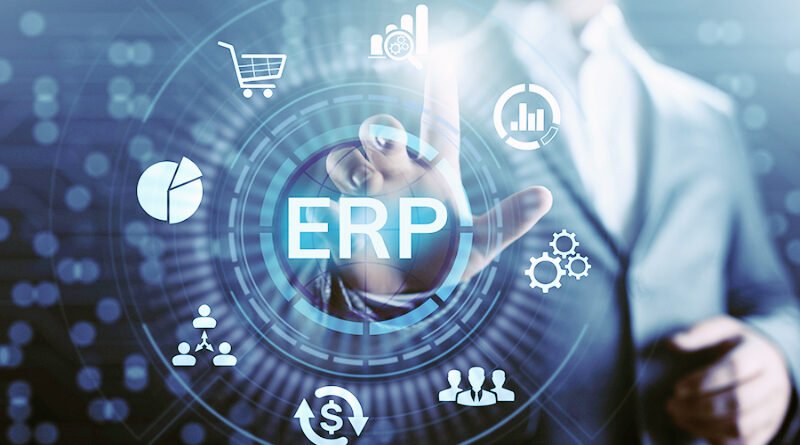Constructing Self-Sufficiency: Empowering Teams to Maximise ERP Systems
Effective ERP implementation goes far beyond technical setup and data translation. The real definition of success is how well teams are able to work on their own within their new system landscape. Those organisations that value self-sufficiency from the very beginning enjoy greater adoption, enhanced operational effectiveness, and greater return on investment. Developing internal competencies involves strategic planning, full-range training programs, and continuous support infrastructure that allows teams to build their abilities over time. When workers are able to comfortably operate their ERP system, they become change champions, not resistors, leading organisational change from the inside out.
Building a Foundation for Independent Operation
Sustaining self-sufficient ERP operations starts with comprehensive knowledge of business processes and system functionality. Teams require end-to-end understanding of how their day-to-day workflows map onto system capabilities so they can diagnose problems and streamline processes without guidance. This underpinning has to be based on in-depth documentation of tailored workflows, unambiguous procedural guidelines, and easily accessible reference materials that facilitate continuous learning. Organisations have to spend some time mapping existing processes on new system capabilities and determining where automation can minimise hands-on intervention. When groups comprehend the why and how of their system processes, they build confidence to navigate complex features and propose changes that boost organisational effectiveness.
Building Internal Champions and Super Users
Internal champions are important to drive ERP adoption and create organisational competency. These super users are given advanced training and become referral sources for others within their organisation, diminishing reliance on outside assistance and improving problem-solving efficiency. Successful champion programs recognise employees who possess strong technical skills, process expertise, and communication skills that can span the IT implementation to business operation divide. Champions need continuous development opportunities in the form of access to enhanced training modules, system maintenance, and best practice knowledge sharing sessions. They are successful with management support, isolation of time for learning the system, and reward for their role in organisational capability building.
Instituting Comprehensive Training Programs
Successful training initiatives target various learning styles and levels of capability and develop incremental skill sets within the organisation. Primary training must address the basic functionality and routine operations, with specialist modules offered as groups become confident and experienced. Training needs to be role-specific so that individual members of the team receive pertinent instruction for their specific roles within the system. Advanced cloud-based solutions such as MYOB Advanced Acumatica provide rich online documentation, interactive training tutorials, and collaborative forums to facilitate ongoing learning. Organisations are helped by combining formal training sessions with hands-on experience, peer-to-peer learning opportunities, and regular refresher sessions that reinforce major concepts and provide exposure to new features.
Establishing Strong Documentation and Knowledge Management
Autonomous teams need access to rich documentation that documents standard procedures as well as organisation-specific customisations. Such a knowledge base would contain step-by-step guides, troubleshooting instructions, and examples of typical situations that teams have to deal with on a day-to-day basis. It is necessary to update documents continually to incorporate system changes, process enhancements, and lessons learned from real usage. Well-designed knowledge management systems allow teams to readily locate answers to questions, pass on solutions to their colleagues, and add their own learnings to organisational knowledge. If teams can access the information they need by themselves, they spend less time waiting for assistance and more time on value-added activities.
Fostering Process Ownership and Ongoing Improvement
Self-reliance thrives when teams own their processes and feel empowered to propose improvements. This means building an environment in which employees are prompted to try out system features, spot inefficiencies, and recommend solutions. Organisations need to implement frequent review mechanisms through which teams can talk about problems, exchange findings, and work on optimisation prospects. Process ownership helps ensure that teams know not only how to get work done but also why processes exist and how they serve organisational goals. When workers feel like process owners instead of task performers, they automatically look for opportunities to make things more efficient and effective.
Creating Scalable Support Mechanisms
Though self-sufficiency is the ideal, teams must still have access to support when they run into difficult problems or wish to add new functionality. Proper support infrastructures offer more than one level of support, from peer-to-peer assistance through internal champions to specialised technical assistance for advanced integration or customisation requirements. Organisations must have relationships with seasoned implementation partners who can assist with advanced features, system tuning, and strategic planning. Scalable support entails teams having the ability to solve most problems on their own, knowing that expert assistance is there when required. Such balance shuns over-reliance and guarantees teams never feel left behind in their learning process.
Measuring Success and Maintaining Momentum
Sustainable ERP operations need constant measurement and continuous improvement in order to remain effective in the long run. It is advisable for organisations to monitor such measures as user adoption rates, system usage levels, and support request frequency to measure progress towards autonomy. Ongoing feedback sessions enable the areas where further training or support would be valuable to be determined, while success stories can be communicated to encourage further learning. Momentum must be sustained by celebrating success, rewarding team members who express superior system proficiency, and offering opportunities for ongoing growth and development. When self-reliance is ingrained in organisational culture, naturally teams find means to increase their capacities and help continue optimising the system.
Also visit Digital Global Times for more quality informative content.

